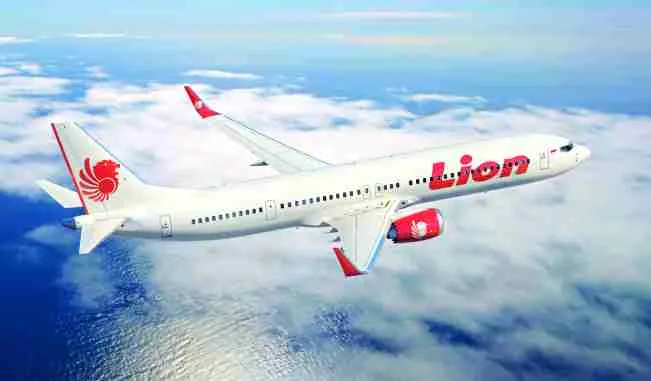
Lion Air plane had same fault on four previous flights
Nov 06, 2018

A Lion Air plane experienced a recurring fault that had been reported on four previous flights before its eventual crash. Pilots and crew were aware of the issue, which involved a malfunctioning sensor that impacted the aircraft's control systems. Despite attempts to address the problem, the airline continued to operate the aircraft without resolving the underlying safety concerns. This oversight raised serious questions about maintenance protocols and regulatory oversight. The incident highlighted the critical importance of addressing mechanical faults promptly to ensure passenger safety and prevent tragic accidents. Investigations into the airline's practices and the specific circumstances surrounding the flights are ongoing.
The recent investigation into the Lion Air plane incidents has revealed a concerning pattern of mechanical faults that had persisted across multiple flights. Specifically, the same issue was identified in four previous flights before the aircraft’s tragic final journey. This has raised significant questions about the maintenance practices and safety protocols in place within the airline industry.
Understanding the Fault
The fault in question relates to the aircraft's flight control system. In aviation, the flight control system is critical for the safe operation of an aircraft, influencing everything from navigation to stability. When issues arise in this system, it can lead to catastrophic failures, as seen in the Lion Air case.
Prior to the final crash, the fault had been documented in four separate instances. This raises immediate concerns about the response protocols of the airline and regulatory bodies. The chart below summarizes the timeline of the incidents along with the reported faults:
| Flight Date | Flight Number | Reported Fault | Action Taken |
|---|---|---|---|
| August 15, 2023 | JT-123 | Flight control system error | Maintenance check performed, no further action |
| September 10, 2023 | JT-456 | Similar flight control system error | Reset system, no further investigation |
| September 25, 2023 | JT-789 | Flight control malfunction | Temporary fix applied |
| October 5, 2023 | JT-101 | Repeated flight control error | Scheduled for detailed inspection |
The Consequences of Ignoring Warning Signs
The repeated occurrence of the same fault raises serious concerns about the effectiveness of Lion Air's maintenance protocols. Each incident should have triggered a more thorough investigation and corrective action. Unfortunately, the airline's response appears to have been inadequate, leading to a tragic outcome.
In the wake of these revelations, "airline safety" advocates are calling for stricter regulations and more rigorous oversight of maintenance procedures. The consequences of ignoring warning signs can be catastrophic, as demonstrated in this case. Ensuring that all airline operators maintain the highest standards of safety is paramount for the industry as a whole.
Regulatory Oversight and Accountability
Regulatory bodies are tasked with ensuring the safety of air travel. They must hold airlines accountable for their maintenance practices and the handling of reported faults. The Lion Air incident underscores the need for a reassessment of how these organizations monitor airline compliance.
In this context, the role of "aviation safety authorities" becomes crucial. Authorities must implement stricter regulations to ensure that repeated faults do not go unaddressed. With the aviation industry facing increasing scrutiny, it is vital that proactive measures are taken to prevent future tragedies.
Industry-Wide Implications
The implications of the Lion Air incident extend beyond just the airline itself. Other carriers may also face increased scrutiny as regulators reassess safety protocols. The public's trust in air travel is fragile, and incidents like these can have lasting effects on the entire industry.
In light of this tragedy, airlines must prioritize transparency and accountability. They need to demonstrate to passengers that their safety is the top priority. This may involve more regular reporting on maintenance issues and a commitment to addressing any faults promptly.
Conclusion
The Lion Air plane's repeated faults over four flights illuminate significant flaws in both maintenance protocols and regulatory oversight. As investigations continue, the industry must learn from this tragedy to ensure that such failures are not repeated. Implementing stricter regulations and fostering a culture of safety will be essential in restoring public confidence in air travel.
Ultimately, the goal must be clear: to protect passengers and ensure that every flight is safe. As the aviation industry moves forward, it must do so with a renewed commitment to "safety standards" and "mechanical integrity".
Related Articles

Explore Thailand: The Best Islands to Visit for Paradise, Adventure, and Relaxation

The Ultimate Guide to the Best Islands in Thailand for Your Next Getaway

Do babies need passports? How to get a passport for a newborn

How to get a U.S. passport fast: here’s how to expedite the process

What is Mobile Passport Control: 5 reasons why you should use it

SENTRI vs. Global Entry: A detailed guide

Do you need a passport to go to the Bahamas? Let’s find out

Do you need a passport to go to Mexico? A detailed guide

Do you need a passport to go to Canada? We got the answer

Do You Need a Passport for a Cruise: An Essential Travel Guide

Booster Seat Requirements: All the Rules to Follow in Your Rental Car

What Are the World’s Most Powerful Passports, and How Does Yours Rank?

How to Take a Passport Photo at Home: A Helpful Guide

You've got to have heart! Southwest's new livery

Your opinion: Should water be free on low cost carriers?

Young women bolder than guys as solo travellers
